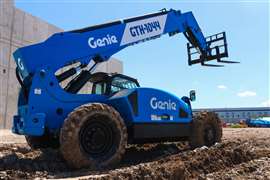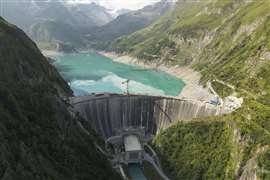EU halves pre-stressed steel cartel fines
06 April 2011
The European Commission has reduced the fines it issued last year to a cartel of 17 manufacturing steel products for pre-stressed concrete by € 249 million to € 269 million.
The Commission imposed the initial € 518 million in fines in July 2010 after finding that the companies fixed prices and restricted competition across almost all of Europe from 1984 to 2002.
But the total was reduced last October to € 458 million, and has now been further cut to nearly half the original penalty, with the biggest reduction for the leader of the cartel, Arcelor Mittal.
It must now pay € 45,7 million, compared to the original € 230 million fine announced by the Commission in July. Meanwhile, Italcables/Antonini saw its fine reduced by -50% to € 2,4 million and Nedri's original fine was cut by -25% to € 6,9 million.
Among the other companies most heavily fined in July last year were Global Steel Wire/Tycsa (€ 54 million), WDI/Pampus (€ 56 million) and Voest Alpine (€ 22 million). Global Steel Wire/Tycsa and Voest Alpine's fines remained unchanged, while WDI/Pampus's was reduced by -5% to € 46,5 million.
The Commission said that the very long duration of the cartel meant that the fines imposed on several companies would have exceeded the legal maximum of 10% of their 2009 turnover, and the reductions were therefore necessary.
And in relation to Arcelor, the Commission pointed out that the cartel was operated by several subsidiaries that existed before the company was created. The subsidiaries themselves could not afford to pay such a large penalty, and Arcelor was under no legal obligation to pay the fines for actions that occurred before they were under its ownership, according to the Commission.
The long-running cartel was active across all the countries that formed the EU in the 18 years to 2002, with the exception of Greece, Ireland and the UK, while Norway was also affected. The price fixing was only brought to an end when the cartel was exposed by one of its members - DWK/Saarstahl, under EU leniency rules. Although named in the cartel, the company received no fine as a result.
Anti-competitive practices are said to have included fixing quotas and prices, allocating clients and exchanging commercially sensitive information. The cartel is also accused of monitoring prices, and meeting up regularly on a European and regional basis to discuss prices. The Commission says it has evidence of 550 such meetings.
STAY CONNECTED


Receive the information you need when you need it through our world-leading magazines, newsletters and daily briefings.
CONNECT WITH THE TEAM










